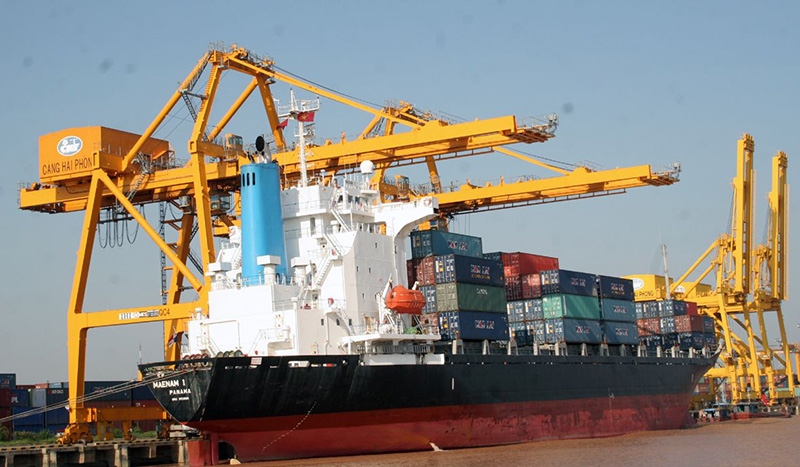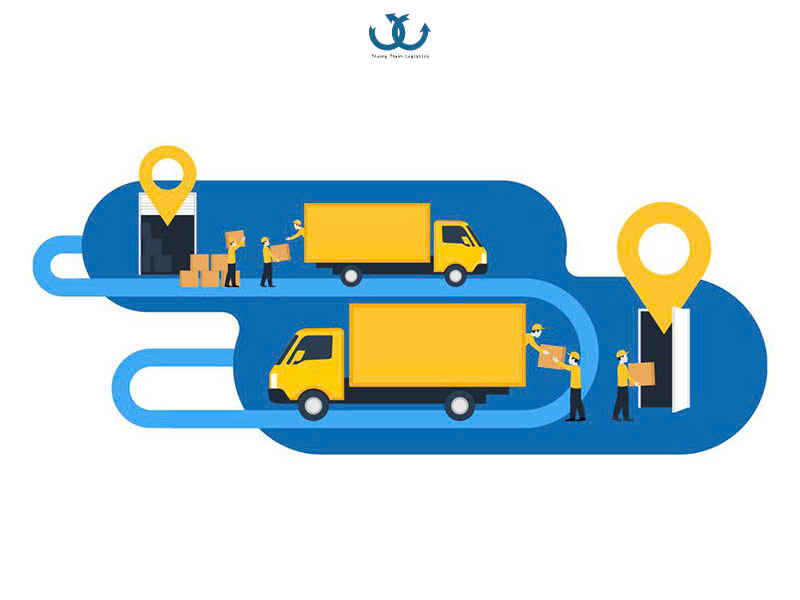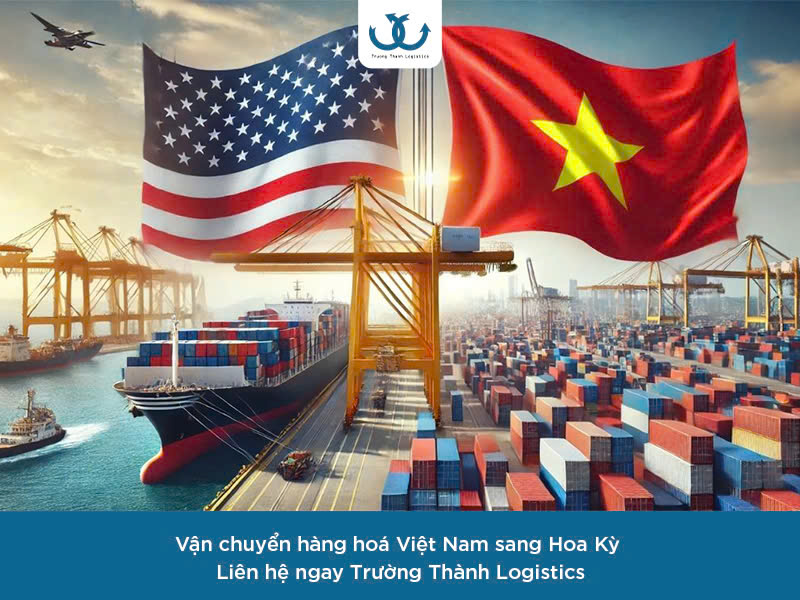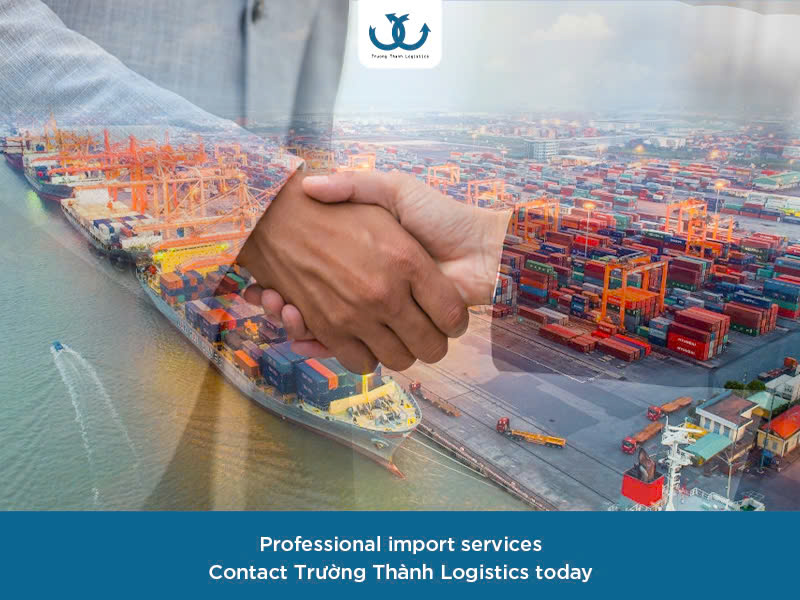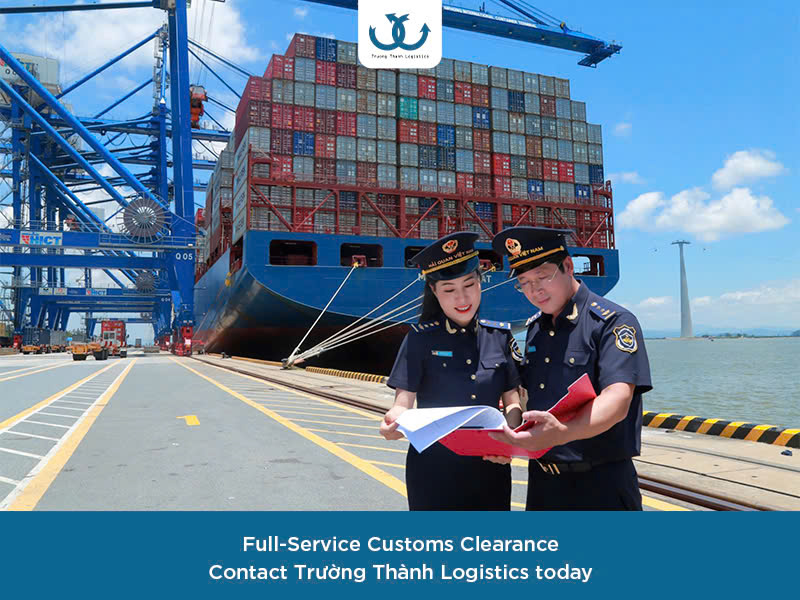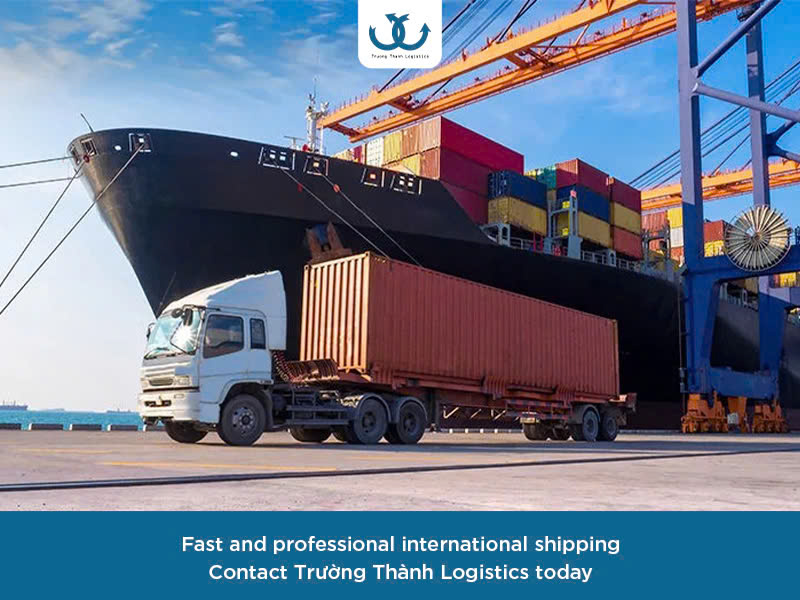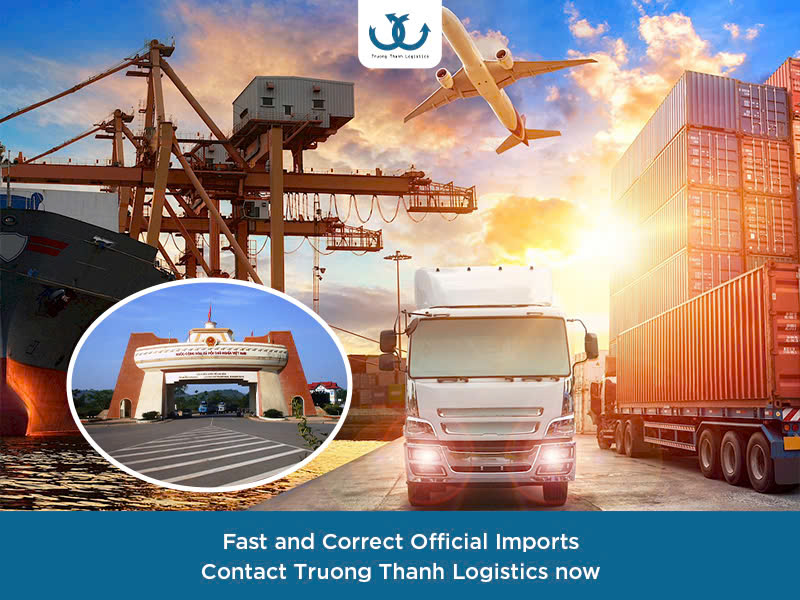International cargo transportation by sea is the optimal solution for shipping large volumes of goods globally. Among these, bulk cargo plays a crucial role in trade activities. From iron ore and grains to crude oil, bulk cargo not only meets the demands of major industries but also offers outstanding economic efficiency.
However, for successful bulk cargo transportation, businesses need a clear understanding of its characteristics, classifications, means of transport, and handling procedures.
With over 10 years of experience, Truong Thanh Logistics provides professional bulk cargo transportation services, ensuring safety, cost-effectiveness, and on-time delivery. Let’s explore the details of bulk cargo and how it shapes the international logistics industry!
What is Bulk Cargo?
Bulk cargo, also known as bulk freight, refers to goods that are not packaged in containers or fixed packaging. Instead, they are loaded directly into the cargo holds of ships, trains, or trucks.
This characteristic makes bulk cargo suitable for commodities with large volumes, irregular sizes, or special transportation requirements.
For example, the mining, agriculture, and energy industries commonly use bulk transportation for:
+ Dry Bulk: Coal, iron ore, grains, plastic pellets, cement.
+ Liquid Bulk: Crude oil, petroleum, chemicals, water.
Bulk cargo is favored due to its ability to transport large quantities at low costs, but it requires specialized vehicles and loading/unloading equipment to ensure safety and efficiency. At Truong Thanh Logistics, we offer optimal bulk cargo transportation solutions that meet all your business needs.

Classification of Bulk Cargo
Bulk cargo is divided into two main groups, each with distinct transportation and handling requirements:
1. Solid Bulk Cargo (Dry Bulk)
Solid bulk cargo includes granular or small-lump goods, typically transported in large quantities:
+ Agricultural Products: Grains (wheat, corn), coffee, soybeans.
+ Industrial Materials: Iron ore, coal, plastic pellets, cement.
+ Construction Materials: Sand, gravel, stones.
These goods are usually loaded into large ship holds or silos, requiring loading equipment such as grabs and conveyors for efficient handling. Dry bulk needs protection from moisture and dust to prevent damage or quality degradation.
2. Liquid Bulk Cargo
Liquid bulk cargo includes liquids such as:
+ Fuels: Crude oil, gasoline, diesel.
+ Chemicals: Acids, solvents, industrial chemicals.
+ Other Liquids: Water, vegetable oils.
Liquid bulk is transported by tankers or specialized containers designed with insulation and leak-proof systems. Safety is paramount when transporting liquid cargo, especially flammable or hazardous substances.
Characteristics of Bulk Cargo Transportation Vehicles
Vehicles for transporting bulk cargo, especially ships, are designed to optimize volume and ensure safety:
+ Spacious Cargo Holds: Without partitions, allowing for the containment of large volumes of piled goods like coal and ore. This helps reduce transportation costs per unit of cargo.
+ Robust Structure: Ships have side tanks and top-side tanks on both sides, which help stabilize the center of gravity and reduce shaking when carrying heavy loads. Cargo holds are reinforced with heavy-duty materials to withstand impacts from goods like stones and ore.
+ Ventilation and Moisture Control Systems: Particularly important for dry bulk like grains, preventing damage from humidity or high temperatures.
Tankers carrying liquid cargo have additional insulation, pumping systems, and safety valves for handling flammable or hazardous materials. These designs ensure maximum protection for the goods throughout the journey.
Bulk Cargo Loading and Unloading Equipment
Specialized equipment is indispensable for the efficient handling of bulk cargo:
+ Pedestal Cranes: Installed at ports, they rotate flexibly and can lift heavy loads such as ore and steel. This type of crane helps save loading and unloading time and minimizes risks.
+ Grabs: Specifically designed for bulk materials like sand, ore, and cotton, reducing spillage and increasing loading/unloading efficiency.
+ Conveyor Belts: Automated systems for transporting dry bulk such as coal and grains from the port to the ship’s hold, saving labor and time.
+ Excavators: Handle large volumes of soil, rock, and sand, suitable for seaports and construction sites.
+ Forklifts and Pallets: Assist in moving and arranging bagged goods in warehouses, ensuring cargo is neatly organized before loading onto ships.
This equipment not only increases efficiency but also ensures the safety of workers and goods during the loading and unloading process.
Sea Transportation Process for Bulk Cargo
Sea transportation of bulk cargo requires a strict process and seamless coordination between workers and equipment. A bulk carrier typically needs 5 – 7 workers with specialized roles:
+ Signalmen: Guide cranes and lifting equipment.
+ Crane Operators: Control cranes or grabs.
+ Lifting Equipment Operators: Manage excavators and conveyor belts.
+ Stevedores: Arrange cargo neatly and evenly in the ship’s hold.
+ Cable Fitters/Unfitters: Ensure safety when lifting and lowering cargo.
Steps in the Process
+ Opening the Hatches: Workers use crane hooks to open the hatch covers, preparing the cargo space.
+ Preparing for Loading: Cranes move cables and hooks to the dockside area. Workers attach cables and hooks to pallets or grabs, adjusting the amount of cargo to match the crane’s capacity.
+ Safety Inspection: The cargo is lifted to a height of 2.5 meters for a test lift to check the stability of the cables and hooks. If safe, the crane continues to move according to signals from the signalmen.
+ Loading and Unloading: As cargo enters the hold, stevedores arrange the goods evenly on both sides to avoid imbalance. For liquid cargo, pumping systems are used to transfer liquids into tankers.
Safety Technical Requirements
+ Scientific Stowage: Cargo is unloaded from top to bottom and distributed evenly to ensure the ship’s stability and prevent listing.
+ Standard Equipment: Cranes, grabs, and conveyor belts must be suitable for the type of cargo and regularly inspected to ensure safety.
+ Labor Protection: Workers must be equipped with helmets, gloves, non-slip shoes, and safety harnesses when working in the ship’s hold or port area.
+ Risk Control: For flammable liquids or chemicals, on-site fire prevention systems and leak detection equipment are necessary.
Benefits of Bulk Cargo Transportation
Bulk cargo transportation offers several advantages for businesses:
+ Cost Savings: Transporting large volumes at once reduces the cost per ton of cargo compared to container shipping.
+ Flexibility for Specialized Goods: Suitable for oversized, irregular, or hazardous liquids.
+ High Efficiency: Specialized ships and modern loading/unloading equipment help shorten transit times, meeting the need for fast delivery.
+ Support for Major Industries: Meets the transportation needs of raw materials for mining, agriculture, and energy.
However, bulk cargo transportation also faces challenges such as the risk of spillage, damage due to weather, or leakage for liquid cargo. Therefore, choosing a reputable logistics partner is crucial to ensure safety and efficiency.
International Bulk Cargo Transportation – Contact Truong Thanh Logistics Now

Truong Thanh Logistics is a leading logistics company in Vietnam with over 10 years of experience in international freight forwarding. We specialize in providing sea transportation services for bulk cargo, ensuring:
+ Maximum Safety: Utilizing international standard tankers and bulk carriers, combined with modern loading and unloading equipment to protect goods from damage, spillage, or leakage.
+ Cost Efficiency: Optimizing loading, unloading, transportation, and customs clearance processes, helping businesses significantly reduce costs.
+ On-Time Delivery: A global network of partners and a team of experienced experts ensure that goods arrive on schedule.
+ Comprehensive Services: From transportation consulting and document processing to customs clearance, we meet all customer needs.
Truong Thanh Logistics has partnered with thousands of businesses in the mining, agriculture, and energy sectors, providing reliable bulk cargo transportation solutions. Let us help you overcome all logistics challenges!
Are you looking for a professional international bulk cargo transportation partner? Truong Thanh Logistics is ready to provide optimal logistics solutions, helping your goods reach their destination safely, quickly, and cost-effectively.
Contact us now for a free consultation!
For assistance with import and export information, international freight, sea transport or import entrustment, please contact Truong Thanh Logistics at the address:
Truong Thanh Logistics – Dedication, Prestige
Hotline: 0915 36 38 39
Headquarter: 26th Floor, Tower A, Song Da Building, Pham Hung, Nam Tu Liem, Hanoi.
Email: sale@truongthanhjsc.com
info@truongthanhlogistics.com
Website: www.truongthanhlogistics.com
Hai Phong Branch
Address: R.A11, TTC Building, 630 Le Thanh Tong, Hai An, Hai Phong
Da Nang Branch
Address: 27 Nguyen Ba Lan, My An Ward, Ngu Hanh Son District, Da Nang.
HCMC Branch
Address: Room 41, 4th floor, Casanova building, 85 Nguyen Son street, Phu Thanh ward, Tan Phu district, Ho Chi Minh City




